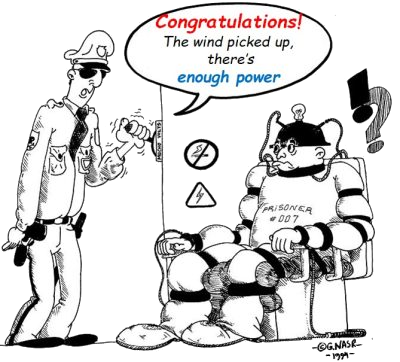EnergieWende
Energiewended to Energie Ende?
Germany makes everything it needs. Everything except Energy.
Like all modern economies, Germany is trapped by Jevons Paradox. This paradox of energy was a question raised in 1865, by the British economist William Stanley Jevons. In his book, the “Coal Question”, he noted that, with any increase in efficiency in resource, came an increase in resource consumption.
It was the age when King Coal reigned supreme, having long supplanted firewood and horsepower.
Today, King Coal shares power with the derivatives of Petroleum; gasoline, diesel, and natural gas. They provide most of our world’s energy. The lion share of this energy goes to the most efficient economies of the world. And Germany is one of the most efficient economies in the world. It needs more and more energy to power its continued development.
Yet, other than coal, Germany has no hydrocarbon resources. Enter the Germany’s shift to renewables. …
Energiewende; the Energy Turnaround.
In Principle, the shift to renewables offers a sustainable solution to Germany’s energy needs. In practice, by phasing out nuclear power, the Energy Turnaround is doomed to failure. It was hard enough to do without petroleum; it would be near impossible without nuclear power.
The Energy Turnaround aimed to rely on solar and wind power for 80 percent of electricity.
But those energy sources face a large challenge: energy storage.
Energy Storage remains an unsolved problem. One promising avenue was “Methanation” and the “sustainable gas” it generated. This gas would then power transport, and it could provide heating.
The technology uses electric power to electrolyze water and extract hydrogen. Chemical processes then combine hydrogen gas with carbon to create methane gas. The gas is compatible with existing infrastructure in transport, power generation, or heating. Yet, after more than 20 years of research, methanation remains at the research stage.
By 2020, it was clear that Germany had failed in its shift toward renewable energy. Without nuclear power, it was back to King Coal.
Yes, Germany’s Energy shift has generated much technical innovation. Yes, it placed Germany in the lead on solar, wind, and energy transmission and storage. However, Germany’s energy shift benefited France’s nuclear energy industry. It also placed Russia, Germany’s main natural gas provider, in the control seat.
By 2022, the situation became dire… Then, the Ukraine War interrupted the flow of gas. Later than summer, France’s aging nuclear park was struggling. Now, on the eve of 2023, how will Germany move forward?
Energie ende?

